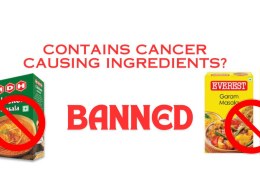India, renowned as the largest producer, consumer, and exporter of spices, faced a setback when certain products of popular Indian spice brands MDH and Everest were banned in Singapore and Hong Kong due to quality concerns. This article aims to delve into the details of the ban, its implications, and the actions taken by regulatory bodies.
Background of the Ban
The ban came into effect after Singapore and Hong Kong food safety regulators detected the presence of ethylene oxide, a carcinogenic substance beyond permissible limits, in several products of MDH and Everest. Ethylene oxide is classified as a group 1 carcinogen by the International Agency for Research on Cancer (IARC), posing serious health risks including breast cancer and lymphoma.
Details of the Ban
In Singapore, the Food Agency directed a recall of the banned products, while in Hong Kong, the Centre for Food Safety urged consumers to avoid purchasing these items and traders to refrain from selling them. The banned products include various spice mixes such as curry powder, mixed masala powder, sambhar masala, and fish curry masala.
Impact on Consumers
The ban has raised concerns among consumers, not only in India but also internationally. A survey conducted by LocalCircles revealed that 72% of consumers who regularly used MDH and Everest spices expressed apprehension after the presence of carcinogenic ingredients was revealed. Additionally, the survey highlighted the low confidence of consumers in Indian food regulators regarding ensuring food safety.
Response from Indian Authorities
The Food Safety and Standards Authority of India (FSSAI) stated that they are investigating the matter. Samples of the banned products are being checked against the parameters prescribed under the Food Safety and Standards Regulations. If found non-compliant, legal proceedings and penalization will be initiated as per the FSS Act, Rules, and Regulations.
Industry Consultation and Future Measures
The Ministry of Commerce has initiated an industry consultation to address the issue of mandatory testing of ethylene oxide in spice shipments to Singapore and Hong Kong. The aim is to ensure that Indian spice exports meet international safety standards and regain the trust of consumers.
Conclusion
The ban on MDH and Everest spice products in Singapore and Hong Kong underscores the importance of stringent quality control measures in the food industry. It is imperative for both Indian authorities and spice manufacturers to prioritize food safety and take proactive steps to address concerns raised by consumers and international regulators.
